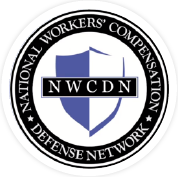Obama’s High Court Pick Seen As Deferential To Agencies — But With Limits
| Appellate court judge Merrick Garland, President Obama’s pick to replace the late Supreme Court Justice Antonin Scalia, is widely seen as deferential to OSHA and other agencies — though he has ruled against OSHA in at least one high-profile enforcement action which the agency is still seeking to address.
Obama March 16 announced his selection of Garland, currently the chief judge on the U.S. Court of Appeals for the District of Columbia Circuit, though Senate Republicans have vowed to block his nomination, saying the next president should select the next Supreme Court justice. Nevertheless, some Senate Republicans — concerned about the prospects of a more liberal pick from likely Democratic candidate Hillary Clinton — have suggested that if a Democrat wins the presidential election, they may consider reviewing Garland during a lame-duck session at the end of the year. “For those of us who are concerned about the direction of the court and wanting at least a more centrist figure between him and somebody that President Clinton might nominate, I think the choice is clear — in a lame duck,” Sen. Jeff Flake (R-AZ), a member of the Judiciary Committee, told the New York Times. Since Obama’s announcement, many commentators have noted Garland’s historical deference to agency decisions. For example, SCOTUSblog noted in an analysis developed in 2010, when Garland was previously considered for the high court, that he largely sides with OSHA and other agencies. “In a dozen close cases in which the court divided, he sided with the agency every time,” the analysis says. For example, in a 2009 ruling in FedEx Home Delivery v. National Labor Relations Board (NLRB), Garland dissented from a panel opinion overturning NLRB’s designation of workers as employees rather than contractors. In another 2009 ruling, Northeast Bev. Corp. v. NLRB, Garland similarly dissented from a panel opinion overturning NLRB’s determination that certain conduct was protected under Section 7 of the National Labor Relations Act. And in a 2003 ruling in Secretary of Labor v. Excel Mining, Garland joined by Judge Judith Rogers upheld Labor Department citations against mine operators. He also backed the agency in Ross Stores v. NLRB, a 2001 decision where he dissented from the panel’s determination to overturn NLRB’s finding that the employer unlawfully admonished an employee for engaging in union solicitation. Garland has been similarly deferential to EPA — and agency with which OSHA is increasingly cooperating and coordinating. However, the analysis notes that Garland has also frequently been willing to back environmentalists’ challenges to agency rules. “This is in fact the area in which Judge Garland has been most willing to disagree with agency action,” the analysis says. In several unanimous rulings in which Garland has participated, the court has also underscored a concern that civil rights plaintiffs receive an appropriate day in court, according to the SCOTUSBlog analysis. For example, in 2008, Garland wrote the unanimous decision in Steele v. Schafer, where the panel reversed a lower court’s summary judgment holding for an employer and reinstated hostile work environment and retaliation claims. Enforcement Actions While Garland has largely been deferential to agency decisions, he appears to have a mixed record when reviewing OSHA enforcement actions. For example, in one high-profile case, he joined the majority in a split 2014 decision in Sea World of Florida v. Perez to uphold an OSHA finding that Sea World violated the general duty clause of the OSH Act “by exposing trainers to recognized hazards when working in close contact with killer whales during performances, and that abatement procedures recommended by the labor secretary were feasible,” according to the ruling. “Statements by SeaWorld managers do not indicate that SeaWorld’s safety protocols and training made the killer whales safe; rather they demonstrate SeaWorld’s recognition that the killer whales interacting with trainers are dangerous,” Rogers wrote in the majority opinion that Garland joined. By contrast, Garland wrote a concurring opinion in Volks Constructors v. Secretary of Labor, a 2012 decision, in which he ruled to overturn an OSHA enforcement action, rejecting the agency’s argument that its six-month statute of limitations applies to injury and illness recordkeeping violations. According to lawyers at Conn Maciel Carey, OSHA had tried to impose a legal theory that inaccurate logs were a “continuing violation” that tolled the statute of limitations period for every day the log remained inaccurate. But Garland held that a recordkeeping violation occurs at a point in time when the recordkeeping entry was due to be perfected, it does not continue beyond that date, and OSHA may not cite beyond six months from that date. According to the lawyers, Garland cautioned not to override his opinion, emphasizing that: “This does not mean, however, that the statute could not admit of a continuing violation theory under other circumstances.” OSHA is now working on a rulemaking to undo that decision, the lawyers say. |

